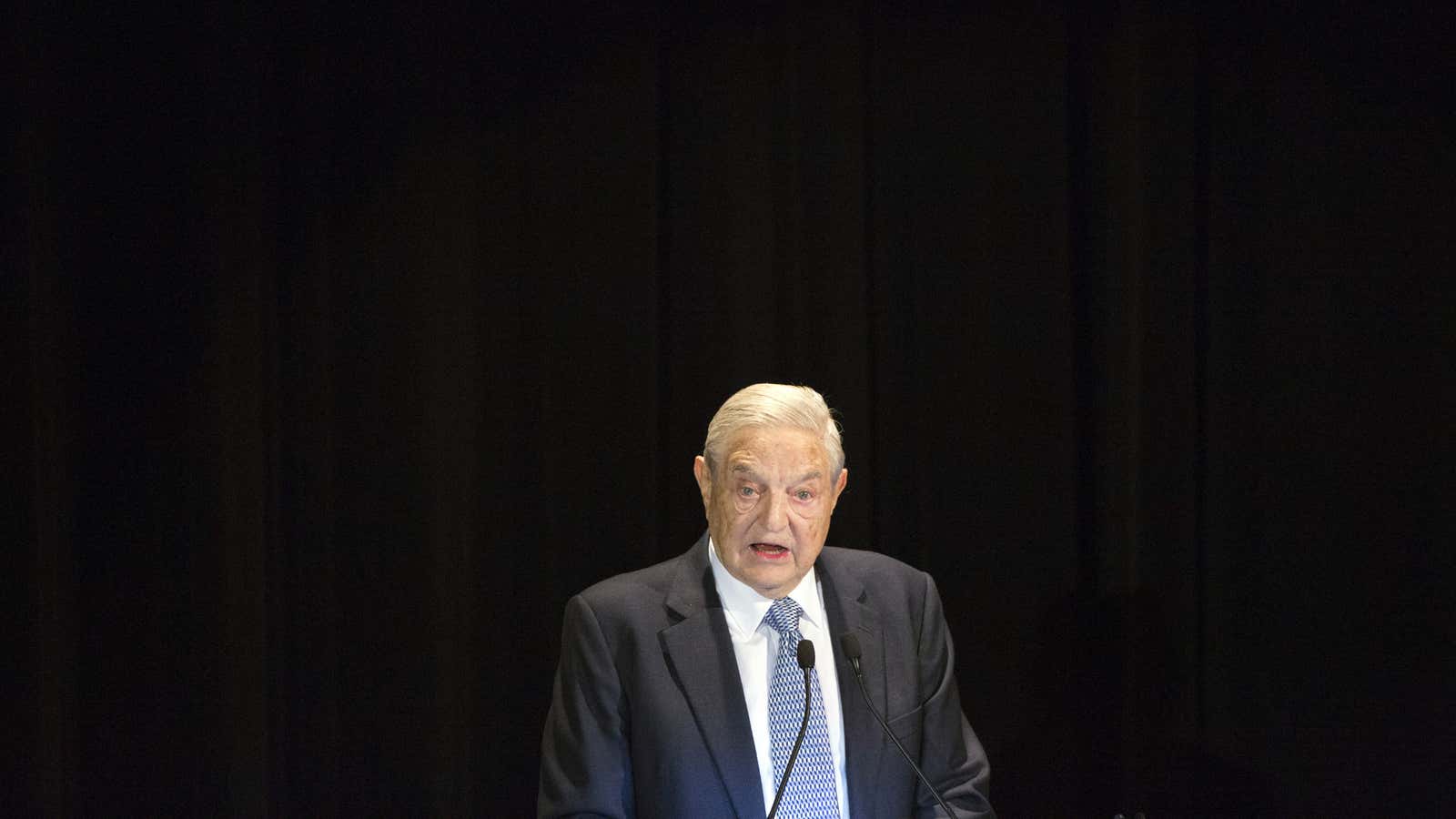The biggest risk that the world economy now faces isn’t the stability of the euro zone or the logjam of US politics, according to famed investor and philanthropist George Soros. Rather, China is the reason to doubt optimism about the global economy, he says.
Soros’s concern, expressed in a column for Project Syndicate, is that the Communist Party’s renewed focus on economic growth is at odds with its commitment to structural reform. He also likens China’s financial condition to those in the US before the financial crisis.
“[T]here is an unresolved self-contradiction in China’s current policies: restarting the furnaces also reignites exponential debt growth, which cannot be sustained for much longer than a couple of years,” writes Soros. “How and when this contradiction will be resolved will have profound consequences for China and the world.”
Of course, he isn’t the only China bear. Among others, Patrick Chovanec of Silvercrest Asset Management, an expert on China’s economy, also argues that optimists are missing something big.
“Western investors largely ignored the cash crunch [in Dec. 2013] and failed to grasp its potential significance,” Chovanec wrote in Bloomberg. “These repeated crises are a sign that the foundations of China’s investment-driven growth model are crumbling—with unsettling implications for the rest of the global economy.”
Why are people tuning out the warning bells? Both Soros and Chovanec point to misinterpretations of the Chinese president Xi Jinping’s pledge for sweeping reforms in the country’s agenda-setting Third Plenum in November. For one, the fact that the Party committed to these reforms doesn’t give a clear picture of whether it can pull them off. So far, it’s fumbled; every time the government tries to wind down lending to push companies and local governments to slash their debts, it sets off cash shortages like the ones that occurred last June and December.
The potential global consequences of China’s debt dilemma include the impact on commodity prices, automobile exports, and even foreign banks, writes Chovanec. The impact could expand well beyond the economy per se: Soros says a failure to reform will result in “military confrontation abroad.”
And yet, despite similar doomsaying on China over the last half-decade, the country has never seen anything close to a hard landing; it has produced stellar GDP figures and soaring trade deficits even as the global economy withered.
That track record says very little about China’s ability to adapt to change, though. Since 2003, the government has promised massive growth while offering scant reform. Meanwhile, it has allayed fears about the economy with gushes of credit.
China bulls may be assuming that reform will come as easily as the government’s promises of growth. But this time may actually be different: We’re beginning to see signs that, when it comes to reform, the government can’t or won’t deliver.




